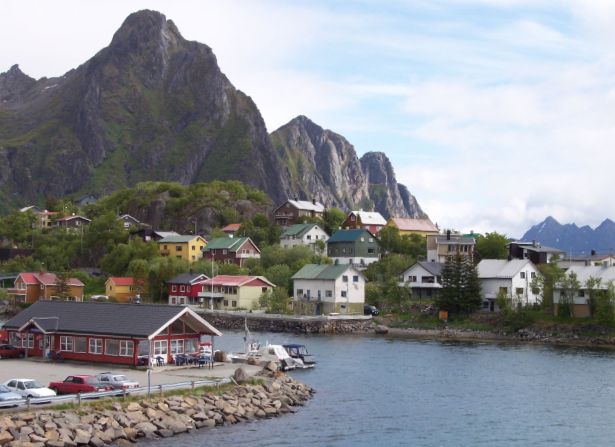Research can be expensive, and there are scholars known who use their control of the pursestrings to make sure that the field gets on their train. Arctic archaeology is expensive, and the Museum of Civilisation in Ottawa is an important gatekeeper. That's why Robert McGhee's name comes up a lot in citations. He does not seem like the kind of man who would impose his research idees fixe, so I am guilty of some awful rhetorical crime in bringing his name up here. It's just that I'm not entirely comfortable about building vast intellectual superstructures on the negative evidence that kayaks and umiaks do not appear in Arctic archaeological contexts prior to the Thule Tradition, or were "first used about 4000 years ago," per Wikipedia. (Because what's two thousand years, more or less, to exact science?) When we read about how Vågan in the Lofoten Isles first becomes known to us when a new north-south axis of trade intercepts a much older east-west circumpolar intersection, we are drawn back to humanity's first penetration of the boreal spaces, which must have involved people moving from Siberia to Alaska, right through the future Inuit (Eskimo) cultural interaction sphere 15,000 years ago. You can choose to assume that they did so without boats, but making that assumption on the basis of negative (archaeological) evidence seeems . . . bold.
 |
| "Lofoten Svolvear Fährhafen Ausfahrt" by Stahlkocher - first upload in de wikipedia on 18:12, 1. Jul 2004 by Stahlkocher. Licensed under CC BY-SA 3.0 via Wikimedia Commons |
That being said, kayaks far more than umiaks are clearly very challenging technologies, and I would be the first to admit that I chose to lead off with this because I wanted to begin with cute kids singing "Land of the Silver Birch." The dichotomy here is between remarkably complex personal watercraft , whether skin-made kayak or birchbark canoe, and not the larger skin boat which, after all, St. Brendan used to carry sixteen passenters across the Atlantic. (Shyeah right.)
Caones, kayaks, umiaks: boats are the defining theme of a post which might just as well have been entitled "Can Ancient Eskimos Tell Us About the Social Context of Technological Learning? Probably."
Caones, kayaks, umiaks: boats are the defining theme of a post which might just as well have been entitled "Can Ancient Eskimos Tell Us About the Social Context of Technological Learning? Probably."
I will also try not to forget about bishops. See? St. Brendan? Of course, my deep skepticism about the reality of St. Brendan is on record here. The argument here is about the social transformation of the high European Atlantic around the turn of the millennium has more to to with the establishment of church-settlements than with largescale population movements. Get rid of the notion that, say, Iona, was uniquely "Celtic Christian," and we can perhaps extend this institution of "mitred abbots," to those parts of the high Atlantic that ended up Nordic rather than Celtic. As Knut Helle so very cautiously points out, the survival of relics of written law in the western Norse communities dating a century before the first Danish laws indicates the primacy of the "English influence" over Scandinavian (that is, Danish) at that early date. Adam of Bremen, it is tolerably clear, is happy to disregard bishops of the northern isles consecrated at York rather than Hamburg-Bremen, and we shouldn't be distracted down the same road by the weird, post-modern liminality of the "Bishop of Sodor." Yes, Sir Topham Hatt is trying to put one over on us. (1,2,3,4, also so very much 5.)
So that's the arrow from the east (York>Iona>Hebrides>Iceland) that I want to collide with an arrow from the west at Amassalik (Tasiilaq, "The Place of Capelins"), at 65 degrees,43 minutes North on the east coast of Greenland, almost due west of Bjargtangar at the tip of the Westfjords region, settled in the landtaking by the chieftain Helgi Magri Hrólfsson.
| Looking west from Bjargtangar. With wild surmise, etc. Source. |
The long line of the Western Continent on the horizon, the heretical suggestion of a "Celtic Atlantic," made in the full knowledge that it is the classic resort of crackpots. Rest easy, though. I'm not trying to get Irish to Boston.
I'm putting Sami in Greenland.
I'm putting Sami in Greenland.



